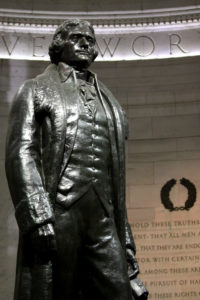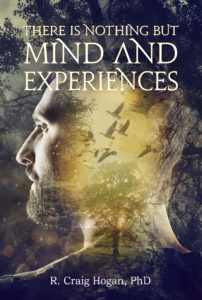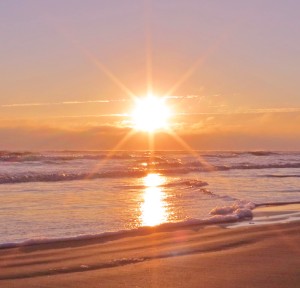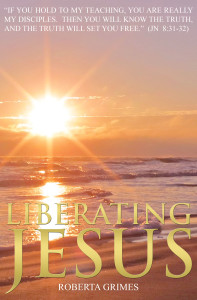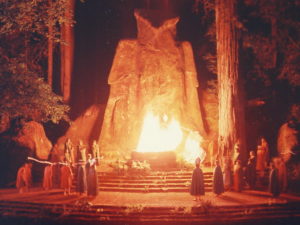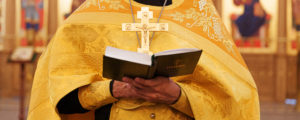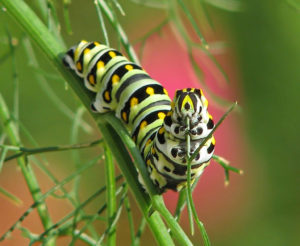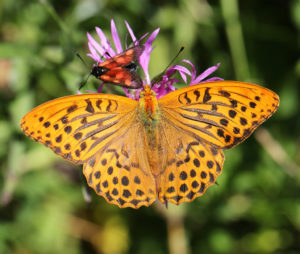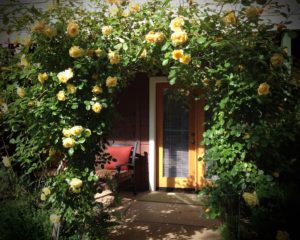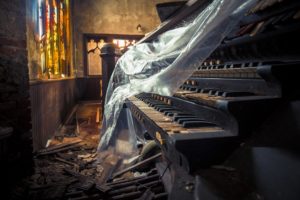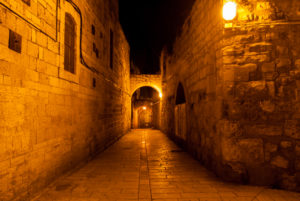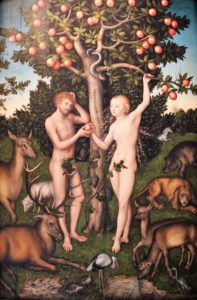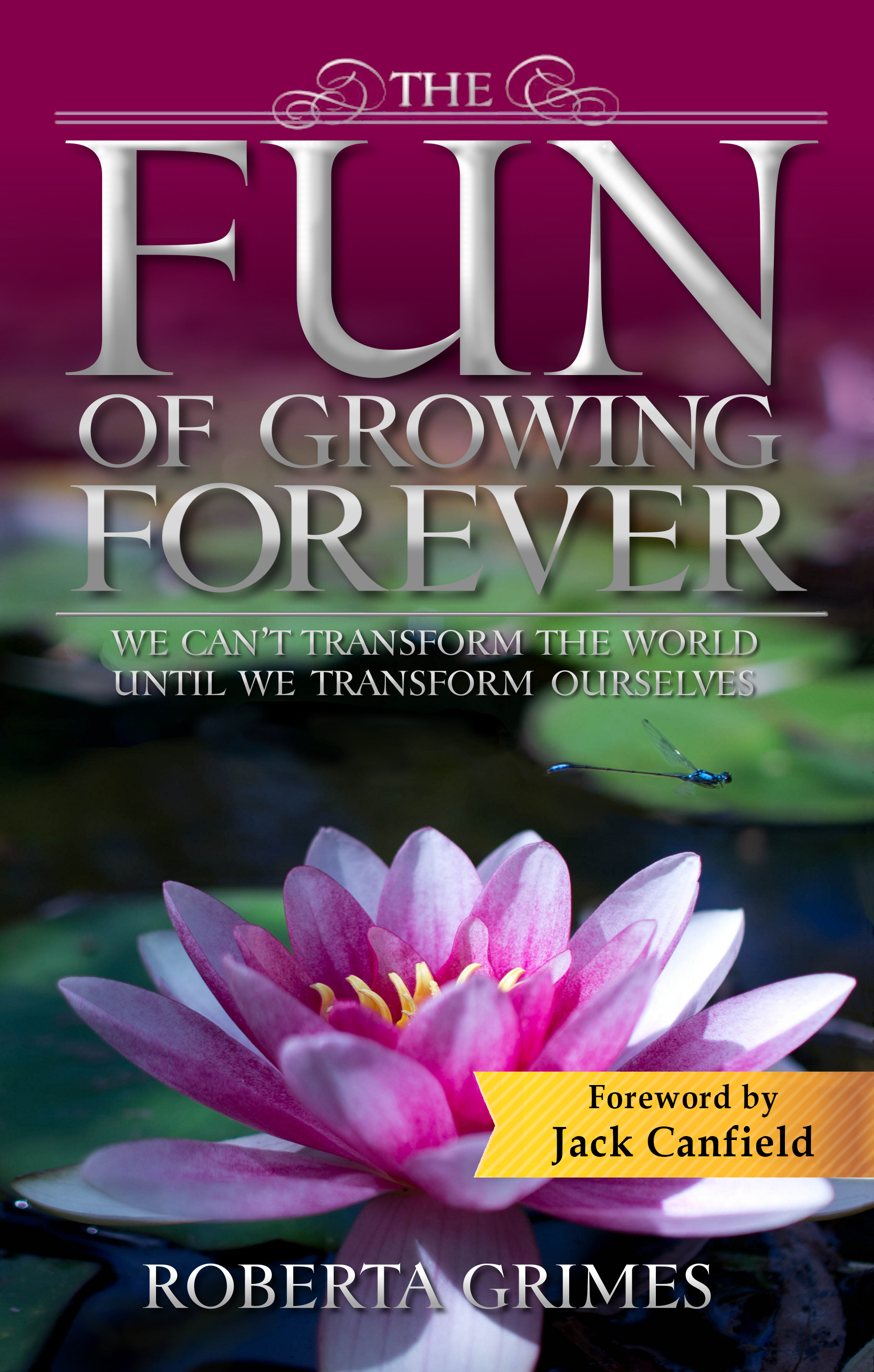God hath not promised skies always blue,
flower-strewn pathways all our lives through.
God hath not promised sun without rain,
joy without sorrow, peace without pain.
God hath not promised we shall not know
toil and temptation, trouble and woe.
He hath not told us we shall not bear
many a burden, many a care.
But God hath promised strength for the day,
rest for the labor, light for the way,
Grace for the trials, help from above,
unfailing sympathy, undying love.
– Annie Johnson Flint (1866-1932), from “What God Hath Promised” (1919)
 The best way to better understand anything is to attempt to teach it to others. And as we are moving through our first course on using the teachings of Jesus to make this your last necessary earth-lifetime, which by the way I am very much enjoying, I am struck by how much better I can now see the way that Jesus’s teachings on forgiveness and His teachings on love fit together. Indeed, now I would say that until you first understand and can apply Jesus’s method of prevenient forgiveness, for you to love as Jesus wants us to love is probably impossible.
The best way to better understand anything is to attempt to teach it to others. And as we are moving through our first course on using the teachings of Jesus to make this your last necessary earth-lifetime, which by the way I am very much enjoying, I am struck by how much better I can now see the way that Jesus’s teachings on forgiveness and His teachings on love fit together. Indeed, now I would say that until you first understand and can apply Jesus’s method of prevenient forgiveness, for you to love as Jesus wants us to love is probably impossible.
I invite emails from those who have questions or problems, so I hear from many people. And in answering thousands of emails over the years, I have been struck by some consistent strains. Nearly everyone I hear from is a lifelong Christian who has left daily church attendance and has a problem that in earlier years they might have taken to a clergyman; but since they have become un-churched, they think of me as the next best thing. What strikes me, though, is that these people generally have little to no spiritual resources. In all their lifelong church attendance, most of them have learned little of what Jesus taught beyond “love your neighbor.” They have learned almost nothing about how to reach out to God beyond The Lord’s Prayer, and they never have been given the spiritual depth to cope with earth-life’s many problems. Religions are supposed to be all about spirituality, and yet from what I can see there is little if any useful spirituality taught by any Christian denomination.
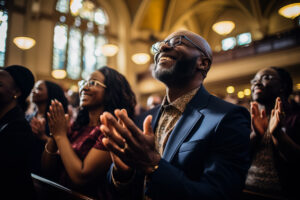 Your first thought will be that, well, this is a deeply un-spiritual age, so no wonder. But isn’t this something of a chicken-and-egg situation? If the world’s most prominent religion better taught its followers the importance of acquiring the basics of living a spiritual life, and how those basics can support us in times of trouble, then surely ours would be a far more spiritual period in human history! And sadly, modern Westerners who hear the word “spiritual” too often think we must be referring to Eastern religious practices. Or if we are talking about Christianity, they imagine that we are discussing mostly hymn-singing and after-services conviviality.
Your first thought will be that, well, this is a deeply un-spiritual age, so no wonder. But isn’t this something of a chicken-and-egg situation? If the world’s most prominent religion better taught its followers the importance of acquiring the basics of living a spiritual life, and how those basics can support us in times of trouble, then surely ours would be a far more spiritual period in human history! And sadly, modern Westerners who hear the word “spiritual” too often think we must be referring to Eastern religious practices. Or if we are talking about Christianity, they imagine that we are discussing mostly hymn-singing and after-services conviviality.
But our spiritual aspect is the most deeply human aspect of our lives. We eat and sleep and procreate, but so do all the beasts. The only thing that any of us has that the animals around us do not have is the core certainty that we are part of Something much greater than ourselves. And in accessing and dwelling in and feeding that certainty, we strengthen and empower its role in our lives. Our innate personal spiritual aspect then can be steadily nurtured, to the point where we rise spiritually beyond the need to incarnate on the earth ever again. And that, my dear friends, in secular terms is what spirituality is. There is nothing woo-woo about it. Best of all, growing spiritually makes you happy! Beyond anything else that the world has to offer, growing spiritually fills you with joy, and with a peaceful certainty that rights your whole life.
 For each of us to do this spiritual work is our fundamental need as human beings. A Course in Miracles tells us that the Course itself is required; it is only the decision about when we are going to take it that is up to us. And ACIM is in fact just a much more elaborate version of the basic teachings of Jesus. Indeed, ACIM was channeled to us by Jesus. But whether we do it with ACIM or with a simpler version of the same thing such as the course that I am presently teaching, using the teachings of Jesus is the easiest way for us to achieve rapid and sustained spiritual growth. And we must do it. Until we do, we will keep returning to earth-lives – or “turning on the wheel,” as the Buddhists say – until eventually we decide to finally attend to our own essential spiritual needs.
For each of us to do this spiritual work is our fundamental need as human beings. A Course in Miracles tells us that the Course itself is required; it is only the decision about when we are going to take it that is up to us. And ACIM is in fact just a much more elaborate version of the basic teachings of Jesus. Indeed, ACIM was channeled to us by Jesus. But whether we do it with ACIM or with a simpler version of the same thing such as the course that I am presently teaching, using the teachings of Jesus is the easiest way for us to achieve rapid and sustained spiritual growth. And we must do it. Until we do, we will keep returning to earth-lives – or “turning on the wheel,” as the Buddhists say – until eventually we decide to finally attend to our own essential spiritual needs.
And yet, growing spiritually is not difficult. In fact, growing spiritually as Jesus taught it is easy and enjoyable. Our primary problem is that the Christianity that the Romans designed at First Nicaea in 325 CE gives no thought at all to spiritual growth, and in fact its awful notion that Jesus was born to die for our sins only works to depress us spiritually. Christianity as the religion has been practiced turns the teachings of Jesus into just the nice thought that we should try to love and forgive. What a tragic waste! When instead, the real reason why Jesus was born was to bring to us the most effective means of rapid spiritual growth that ever has been taught by anyone.
 And the first, key step in the process is forgiveness. Not just everyday forgiveness, mind you, but an extreme type of forgiveness that is based in what scientists are only now learning are deep characteristics of the human brain. How Jesus two thousand years ago so clearly understood the inner workings of the human brain is something that I cannot fathom! But Jesus’s prevenient forgiveness trick absolves everyone and everything automatically; and in so doing, it deeply frees us, too. What I am coming to ever better see as I teach this class is not only how forgiveness and love are tied, with forgiveness necessarily coming before love; but also that our properly learning universal forgiveness in the aggressive way that Jesus taught it is essential if we are ever to get past the petty and selfish ego-based issues that too often keep us from learning to perfectly and wholeheartedly love our fellow man. Until we can forgive as Jesus taught us to forgive, instead of our being able to love as Jesus taught us to love, we always will have a kind of “yellow light” step that requires that we first make sure that the person before us is in fact worthy of our love.
And the first, key step in the process is forgiveness. Not just everyday forgiveness, mind you, but an extreme type of forgiveness that is based in what scientists are only now learning are deep characteristics of the human brain. How Jesus two thousand years ago so clearly understood the inner workings of the human brain is something that I cannot fathom! But Jesus’s prevenient forgiveness trick absolves everyone and everything automatically; and in so doing, it deeply frees us, too. What I am coming to ever better see as I teach this class is not only how forgiveness and love are tied, with forgiveness necessarily coming before love; but also that our properly learning universal forgiveness in the aggressive way that Jesus taught it is essential if we are ever to get past the petty and selfish ego-based issues that too often keep us from learning to perfectly and wholeheartedly love our fellow man. Until we can forgive as Jesus taught us to forgive, instead of our being able to love as Jesus taught us to love, we always will have a kind of “yellow light” step that requires that we first make sure that the person before us is in fact worthy of our love.
So to properly love, we must forgive everything! And this includes possible membership in a culturally disfavored class or race; a personal history that might include crime or other unsavory behaviors; and other things, right down to whatever negative interactions might have happened between us and the person we are trying to love. Jesus insists that we must forgive it all! When Jesus’s disciple Peter asked Him, “Lord, how often shall my brother sin against me and I forgive him? Up to seven times?” Jesus said, “I do not say to you, up to seven times, but up to seventy times seven” (MT 18:21-23). Or in other words, every single time.
 Does our practicing universal prevenient forgiveness mean that we then will never feel anger? Not at all. But more spiritually developed people feel anger much less often. They will tend to feel it for great causes and for others being wronged, but usually not for wrongs against themselves. They also can quickly kill any angry impulse that might arise as they automatically forgive whatever might have provoked it. Even Jesus, who while He was on earth was an extremely spiritually advanced being, did feel and act upon anger; but His was always appropriate anger, and very well controlled. Everyone knows that He had no use for clergymen, calling them hypocrites and false prophets. He treated them so differently from the way He treated everyone else that personally I think He may have literally despised them. But despite His sometimes fiery words against the clergy, Jesus’s anger was always under perfect control.
Does our practicing universal prevenient forgiveness mean that we then will never feel anger? Not at all. But more spiritually developed people feel anger much less often. They will tend to feel it for great causes and for others being wronged, but usually not for wrongs against themselves. They also can quickly kill any angry impulse that might arise as they automatically forgive whatever might have provoked it. Even Jesus, who while He was on earth was an extremely spiritually advanced being, did feel and act upon anger; but His was always appropriate anger, and very well controlled. Everyone knows that He had no use for clergymen, calling them hypocrites and false prophets. He treated them so differently from the way He treated everyone else that personally I think He may have literally despised them. But despite His sometimes fiery words against the clergy, Jesus’s anger was always under perfect control.
Jesus’s most notable bout of rage was what is called the cleansing of the Temple. “The Passover of the Jews was near, and Jesus went up to Jerusalem. And within the Temple grounds He found those who were selling oxen, sheep, and doves, and the money changers seated at their tables. And He made a whip of cords, and drove them all out of the Temple area, with the sheep and the oxen; and He poured out the coins of the money changers and overturned their tables; and to those who were selling the doves He said, ‘Take these things away from here; stop making My Father’s house a place of business!’” (JN 2:13-16) My own spirit guide Thomas was Jesus’s friend in that lifetime. His role for Jesus was to go out among the people and report back what they were saying. And wonderfully, Thomas now tells me that he actually was there for the Temple cleansing. He saw it happen! He says that Jesus was then entered Jerusalem for His final Passover and His crucifixion. His work on earth was nearly done, and this was primarily a burst of frustration that He had been able to do so little to end these disrespectful practices. But his anger was mostly at the fact that He had run out of time, Thomas thought. And Jesus made the whip just to drive out the cattle. He didn’t hit the people!
 Jesus taught an exercise that makes our obeying His command to practice prevenient forgiveness much easier. This exercise cleverly relies on innate characteristics of our minds, but it is physical so a how-to for doing it never made it into the Gospels. When I was trying to learn to forgive more aggressively back in 2011, Thomas taught it to me. And it works so amazingly well! It’s a way to force your mind to reverse the process of becoming angry, and to teach it never to be bothered by anything again. So using His method, you really can reprogram your mind to forgive beforehand everything that ever might happen in all the rest of your life. Later on I asked Thomas where that amazing exercise had come from, and that was when he told me that Jesus had taught it. Wow. So that was the reason why Jesus could so easily insist that people forgive everything, every time, even if some specific wrong was committed by the same person over and over again.
Jesus taught an exercise that makes our obeying His command to practice prevenient forgiveness much easier. This exercise cleverly relies on innate characteristics of our minds, but it is physical so a how-to for doing it never made it into the Gospels. When I was trying to learn to forgive more aggressively back in 2011, Thomas taught it to me. And it works so amazingly well! It’s a way to force your mind to reverse the process of becoming angry, and to teach it never to be bothered by anything again. So using His method, you really can reprogram your mind to forgive beforehand everything that ever might happen in all the rest of your life. Later on I asked Thomas where that amazing exercise had come from, and that was when he told me that Jesus had taught it. Wow. So that was the reason why Jesus could so easily insist that people forgive everything, every time, even if some specific wrong was committed by the same person over and over again.
Having learned that the Apostles must have been teaching the making of forgiveness balls, just as I teach the process today, makes that first three hundred years after Jesus ascended feel more real to me. Here is my favorite passage from the Book of Acts, which is the fifth book of the New Testament. In some Bibles it’s called The Acts of the Apostles. This scene showcases the Apostle Paul, a man who began his career as a persecutor of the followers of Jesus, but then was recruited by Jesus Himself soon after His resurrection to become a great crusader for Jesus’s Way. Paul is the author of most of the letters that make up the bulk of our Bible’s New Testament. Given the adverse conditions under which he had to operate, it is lovely here to see Paul in action before a Greek governing council! Through him, we get a further delightful glimpse of what Jesus actually taught. And Paul clearly loves doing this, advocating for Jesus and the all-encompassing identity of the one true God:
 Paul stood in the midst of the Council of the Areopagus and said, “Men of Athens, I see that you are very religious in all respects. For while I was passing through and examining the objects of your worship, I also found an altar with this inscription, ‘TO AN UNKNOWN GOD.’ Therefore, what you worship in ignorance, this I proclaim to you! The God who made the world and everything that is in the world, since He is Lord of heaven and earth, does not dwell in temples made by hands; nor is He served by human hands, as though He needed anything, since He Himself gives to all people life and breath and all things; and He made from one man every nation of mankind to live on all the face of the earth, having determined their appointed times and the boundaries of their habitation, that they would seek God, if perhaps they might feel around for Him and find Him, though He is not far from each one of us; for in Him we live and move and have our being, as even some of your own poets have said, ‘For we also are His descendants.’ Therefore, since we are the descendants of God, we ought not to think that the Divine Nature is like gold or silver or stone, an image formed by human skill and thought. So having overlooked the times of ignorance, God is now proclaiming to mankind that all people everywhere are to reform their minds, because He has sent a Man whom He has appointed to teach the world in righteousness, having furnished proof to all people by raising Him from the dead” (Acts 17:22-31).
Paul stood in the midst of the Council of the Areopagus and said, “Men of Athens, I see that you are very religious in all respects. For while I was passing through and examining the objects of your worship, I also found an altar with this inscription, ‘TO AN UNKNOWN GOD.’ Therefore, what you worship in ignorance, this I proclaim to you! The God who made the world and everything that is in the world, since He is Lord of heaven and earth, does not dwell in temples made by hands; nor is He served by human hands, as though He needed anything, since He Himself gives to all people life and breath and all things; and He made from one man every nation of mankind to live on all the face of the earth, having determined their appointed times and the boundaries of their habitation, that they would seek God, if perhaps they might feel around for Him and find Him, though He is not far from each one of us; for in Him we live and move and have our being, as even some of your own poets have said, ‘For we also are His descendants.’ Therefore, since we are the descendants of God, we ought not to think that the Divine Nature is like gold or silver or stone, an image formed by human skill and thought. So having overlooked the times of ignorance, God is now proclaiming to mankind that all people everywhere are to reform their minds, because He has sent a Man whom He has appointed to teach the world in righteousness, having furnished proof to all people by raising Him from the dead” (Acts 17:22-31).
This is what Christianity should have been! With a heavy stress on celebrating the one true God “in whom we live and move and have our being,” and on God’s mastery of all creation and His centrality in each one of our lives, Paul announces that God has sent Jesus to teach and lead the world in righteousness, having first proven Jesus’s dominion by raising Him from the dead. Paul was speaking here just a decade or two after Jesus’s ascension. This was three hundred years before the Romans destroyed Jesus’s love-based Way and attached His name to their own fear-based religion.
 Still, these years depicted in the Book of Acts were a time of persecution for Jesus’s followers. The courage that it took for Paul and the other Apostles repeatedly to speak so boldly and so publicly as they advocated for Jesus and His Way, even in Rome itself, is astounding. Every one of Jesus’s leading first followers died a martyr’s death, with many of His Apostles being crucified or beheaded. Paul was beheaded in Rome by the Emperor Nero around the year 64 CE; and Peter was crucified in Rome in the same year, having insisted upon being nailed to the cross upside-down, since he considered himself to be unworthy to die in precisely the same way that Jesus had died. Those in the next generation were often burned alive, either in coliseums or to provide light along roadways. Following Jesus in those early years was an occupation not for sissies. Even now, incredibly, there are people in this world being martyred for their refusal to renounce Jesus. And all of Jesus’s martyrs even to this day have one precious thing in common. With their last breath, they forgive their tormentors. In whatever language they speak, they often use the same words that Jesus used as His executioners were pounding nails into His wrists and feet. He said, Father, forgive them, for they do not know what they are doing” (LK 23:34).
Still, these years depicted in the Book of Acts were a time of persecution for Jesus’s followers. The courage that it took for Paul and the other Apostles repeatedly to speak so boldly and so publicly as they advocated for Jesus and His Way, even in Rome itself, is astounding. Every one of Jesus’s leading first followers died a martyr’s death, with many of His Apostles being crucified or beheaded. Paul was beheaded in Rome by the Emperor Nero around the year 64 CE; and Peter was crucified in Rome in the same year, having insisted upon being nailed to the cross upside-down, since he considered himself to be unworthy to die in precisely the same way that Jesus had died. Those in the next generation were often burned alive, either in coliseums or to provide light along roadways. Following Jesus in those early years was an occupation not for sissies. Even now, incredibly, there are people in this world being martyred for their refusal to renounce Jesus. And all of Jesus’s martyrs even to this day have one precious thing in common. With their last breath, they forgive their tormentors. In whatever language they speak, they often use the same words that Jesus used as His executioners were pounding nails into His wrists and feet. He said, Father, forgive them, for they do not know what they are doing” (LK 23:34).
God hath not promised smooth roads and wide,
Swift, easy travel, needing no guide;
Never a mountain rocky and steep,
Never a river turbid and deep.
But God hath promised strength for the day,
Rest for the labor, light for the way,
Grace for the trials, help from above,
Unfailing sympathy, undying love.
– Annie Johnson Flint (1866-1932), from “What God Hath Promised” (1919)

